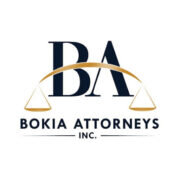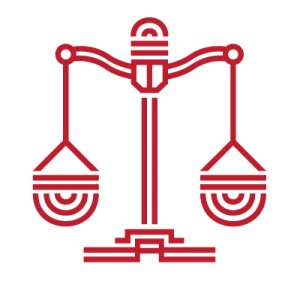Best Whistleblower & Qui Tam Lawyers in Midrand
Share your needs with us, get contacted by law firms.
Free. Takes 2 min.
List of the best lawyers in Midrand, South Africa
About Whistleblower & Qui Tam Law in Midrand, South Africa
Whistleblower and Qui Tam law in Midrand, South Africa, revolves around the legal protections and processes for individuals who report wrongdoing, fraud, corruption, or other illegal activities, especially within organizations or government entities. While “Qui Tam” is more commonly associated with US law, the essence of these laws in South Africa is to provide whistleblowers with protection against retaliation and to encourage the reporting of unlawful conduct in the public interest. Organizations and government agencies in the country are required by law to promote ethical conduct and facilitate safe reporting channels for whistleblowers.
Why You May Need a Lawyer
People often seek legal guidance regarding whistleblower matters in Midrand due to the complexity of the laws and the high risk of retaliation. Common situations where legal help is vital include:
- When considering reporting fraud, corruption, or regulatory violations by an employer or government entity
- To understand what evidence is needed before making a disclosure
- When experiencing workplace retaliation like dismissal, harassment, or demotion after making a protected disclosure
- If you are accused of defamation or breaching confidentiality by your employer after raising concerns
- To navigate formal reporting mechanisms with the necessary legal support
- If you're seeking compensation or protection under the relevant laws
Legal professionals can provide confidential advice, protect your rights, and guide you through the whistleblower process to ensure your disclosure is made in accordance with the law.
Local Laws Overview
In South Africa, and by extension in Midrand, the primary legislation governing whistleblowing is the Protected Disclosures Act 26 of 2000 (PDA). The PDA is designed to protect employees from occupational detriment or retaliation if they disclose information about unlawful or irregular conduct by employers or fellow employees. Key aspects of the law include:
- Protection applies to employees in both public and private sectors
- “Occupational detriment” covers dismissal, demotion, harassment, or any negative treatment after a disclosure
- Disclosures must be made in good faith and based on a reasonable belief of wrongdoing
- The PDA outlines procedural steps for internal and external disclosures
- Disclosure to certain bodies, like the Public Protector or South African Police Service, is specifically protected
- Employers must establish internal whistleblowing procedures
While South African law does not have precise Qui Tam provisions as in the United States, some elements, such as protection and the ability to seek remedies, do exist under current legislation. Additional anti-corruption statutes, employment laws, and the Constitution also bolster whistleblower protections.
Frequently Asked Questions
What is considered a protected disclosure in South Africa?
A protected disclosure is when an employee reports information about unlawful or irregular conduct at their workplace, provided it is made in good faith and accordance with the procedures set out in the Protected Disclosures Act.
Who can be a whistleblower?
Typically, any current or former employee, contractor, or staff member who reports suspected wrongdoing related to their work can be a whistleblower.
What types of wrongdoing can be reported?
Wrongdoing can include fraud, corruption, gross mismanagement, illegal activity, environmental damage, or other conduct that is unlawful or poses harm to the public.
Will my identity be kept confidential if I blow the whistle?
The law encourages confidentiality, but it may not always be possible to keep your identity completely anonymous, especially during investigations or disciplinary proceedings.
What protections do I have against retaliation?
You are protected from occupational detriment, which includes dismissal, demotion, suspension, harassment, or intimidation because of a protected disclosure.
Can I make a disclosure externally if I do not trust my employer’s reporting process?
Yes, you may report to certain external bodies like the Public Protector, Auditor General, or law enforcement agencies if internal channels are not safe or effective, but you must follow the correct procedures for the protection to apply.
What should I do before making a disclosure?
Gather evidence, document your concerns, and seek legal advice to ensure you follow the right procedures and maximize your protection under the law.
Can whistleblowers receive financial rewards in South Africa?
South African law does not currently provide financial incentives as in some countries. The focus is on protection and legal remedies against retaliation.
What if my claim turns out to be mistaken?
As long as your disclosure was made in good faith and based on reasonable belief, your protections as a whistleblower will still apply, even if the claim is later found to be unsubstantiated.
How can a lawyer assist me in a whistleblower matter?
A lawyer can advise you on your rights, help you prepare your case, protect your confidentiality, ensure compliance with procedures, and represent you in any proceedings or disputes arising from your disclosure.
Additional Resources
If you are considering making a protected disclosure in Midrand, several resources and organizations can offer guidance and support:
- Public Protector South Africa - Investigates complaints against government agencies and officials
- South African Police Service (SAPS) - Handles criminal reports
- Auditor-General of South Africa - For matters relating to public finances
- Corruption Watch - An independent civil society organization offering advice and support to whistleblowers
- Legal Aid South Africa - Provides free legal advice for qualifying individuals
- Private attorneys and law firms specializing in employment and whistleblower law in Midrand
Next Steps
If you suspect wrongdoing and are considering blowing the whistle, here are suggested steps:
- Gather and securely store any evidence or documentation related to your concerns
- Consult a qualified attorney in Midrand who is experienced in whistleblower and employment law
- Discuss your options confidentially to understand your rights and the best way forward
- If possible, use your employer’s internal whistleblowing procedures unless you have reason to believe they are unsafe or ineffective
- If necessary, report to external authorities as specified in the Protected Disclosures Act
- Continue to document any feedback, correspondence, or possible retaliation following your disclosure
Seeking legal advice early is crucial to protect your rights and ensure your disclosure is appropriately handled. Each situation is unique, and professional guidance can make the process smoother and less risky.
Lawzana helps you find the best lawyers and law firms in Midrand through a curated and pre-screened list of qualified legal professionals. Our platform offers rankings and detailed profiles of attorneys and law firms, allowing you to compare based on practice areas, including Whistleblower & Qui Tam, experience, and client feedback.
Each profile includes a description of the firm's areas of practice, client reviews, team members and partners, year of establishment, spoken languages, office locations, contact information, social media presence, and any published articles or resources. Most firms on our platform speak English and are experienced in both local and international legal matters.
Get a quote from top-rated law firms in Midrand, South Africa — quickly, securely, and without unnecessary hassle.
Disclaimer:
The information provided on this page is for general informational purposes only and does not constitute legal advice. While we strive to ensure the accuracy and relevance of the content, legal information may change over time, and interpretations of the law can vary. You should always consult with a qualified legal professional for advice specific to your situation.
We disclaim all liability for actions taken or not taken based on the content of this page. If you believe any information is incorrect or outdated, please contact us, and we will review and update it where appropriate.











